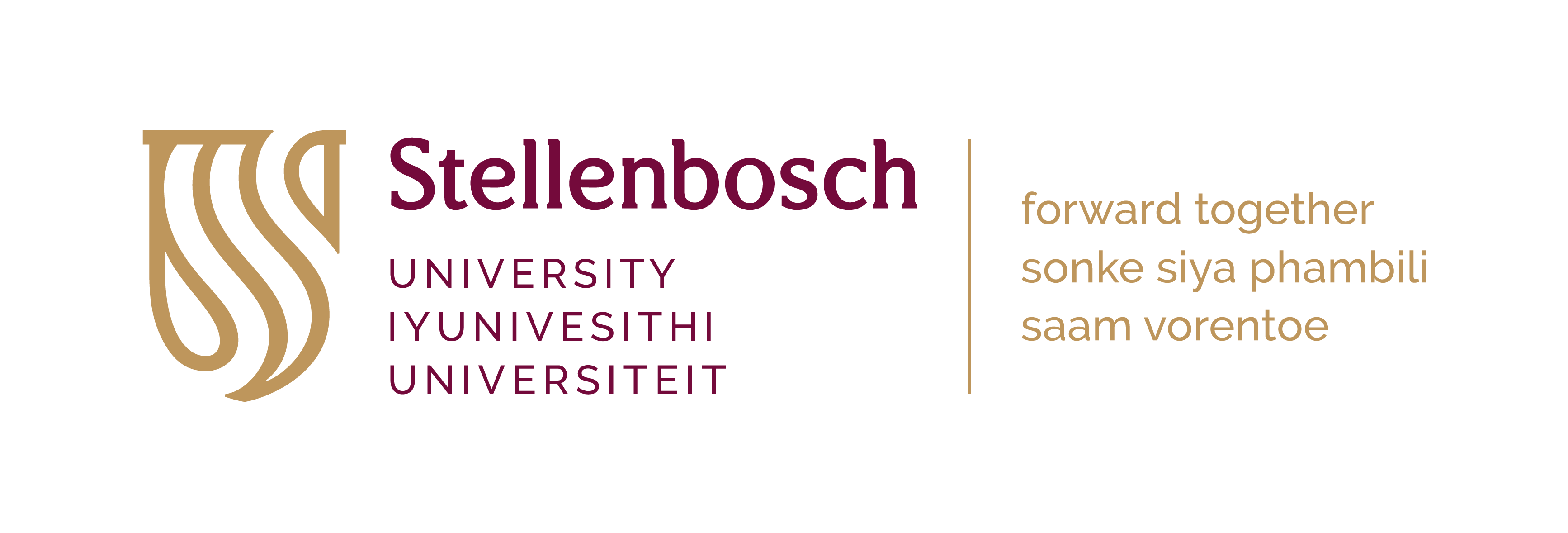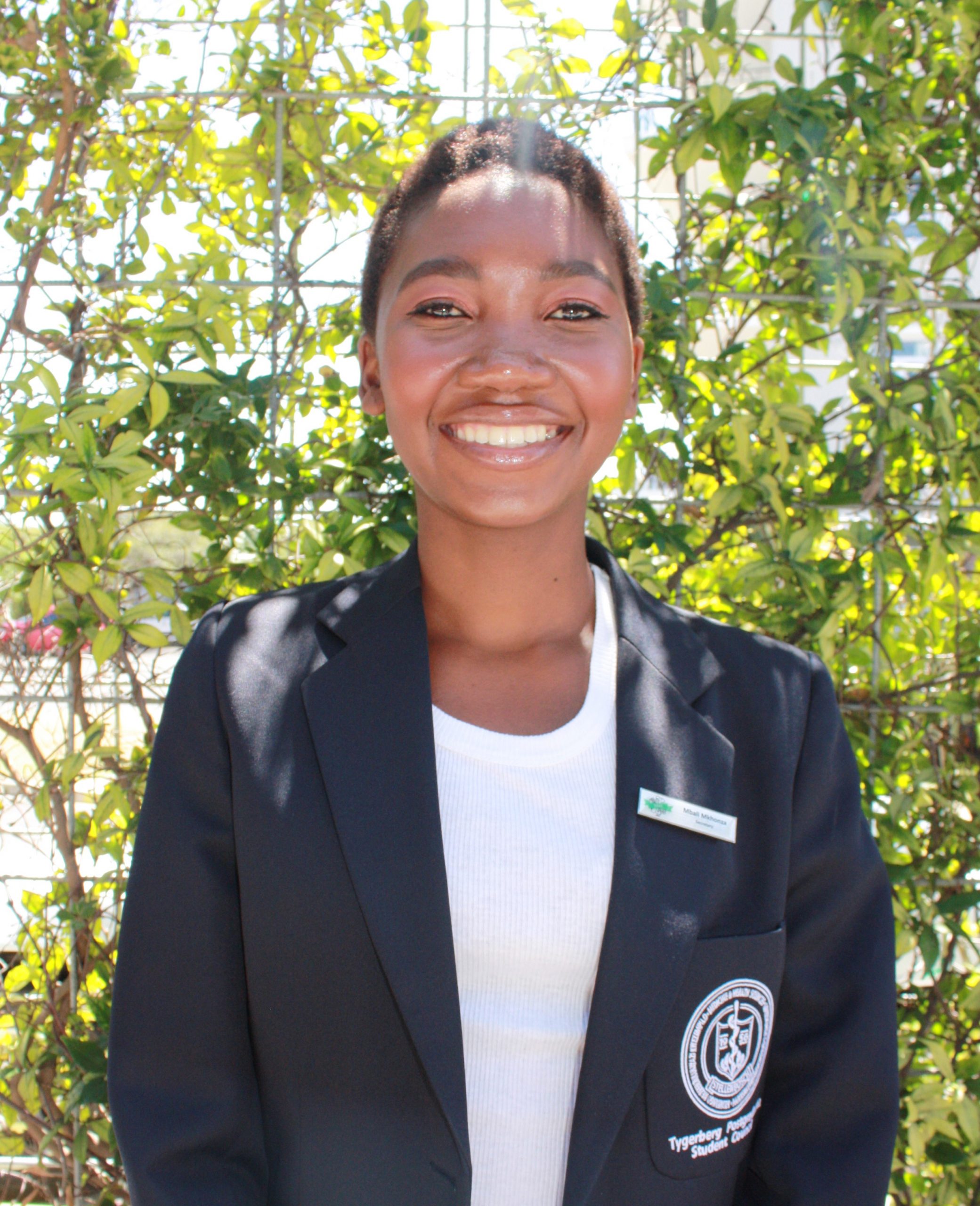[:en]Meet Miss Mbali Nondumiso Mkhonza, a masters candidate within the TB Drug Discovery Research Group at Stellenbosch University’s Division of Molecular Biology and Human Genetics, Faculty of Medicine and Health Sciences.
In celebration of Youth Month 2020, the Division of Molecular Biology and Human Genetics is paying tribute to young researchers within our institute. We share heart-warming stories of our students whose lives give us great hope for the future of South Africa. We thank these students for volunteering to tell us a little about themselves and their research.
Tell us briefly about your background?
I am originally from a rural area in Mayflower, which is about an hour’s drive from Ermelo (Mpumalanga), but I moved to Johannesburg when I was five years old to live with my parents.
Why did you choose your field of study – what or who inspired you? Is this what you envisioned for yourself growing up?
Honestly, I am not really sure why I chose science – specifically disease research, but I am grateful that this is where I am. Growing up, I knew that I wanted to help people and I wanted to do that by becoming a doctor. I volunteered at a hospital and was part of the first-aid team at school, so I was certain that medicine was the career path I wanted to follow. But my marks were not that great and so I pursued science as sort of a detour route into medicine.
However, my dad getting sick in the final year of my undergraduate studies made me want to know more about diseases and led me to apply for Honours in the Division of Molecular Biology and Human Genetics.
What is your research focus on?
My research is focused on drug discovery and development for the treatment of tuberculosis (TB). My group studies the host’s immune response to infection in order to try and find ways in which we could combine important proteins that the host produces, with the current TB medication and assist the host to fight the disease.
How can your research help to improve Africa and/or the lives of its people?
I think research that focuses on the host’s immune response to disease could be very helpful in allowing us to better understand the various roles that different genes and proteins play in the defence against disease.
In the context of Africa, which is such a diverse continent with many different people as well as many factors that can contribute to our way of life, the way our immune system responds could be a crucial aspect to study when hoping to treat this prevalent disease. By studying, and eventually encouraging the production of, beneficial proteins that the host immune system uses during infection, my research hopes to help lessen the tuberculosis burden that we are currently facing.
What obstacles did you have to overcome to get where you are today?
I would say one of the biggest concerns for me, especially after the passing of my dad, was the finances needed to continue studying. But I have been fortunate enough to receive assistance and funding to be able to continue on to where I am today. Another obstacle that often arises is the expectations of family members. I think choosing to pursue a career in science means a lot of studying, and sometimes that can cause a few disagreements. However, I would say the biggest obstacle I had to overcome was myself – and what I thought I was capable of achieving.
If you could invite any three researchers (alive or dead; local or international) to a dinner party, who would you pick and why?
A researcher I would like to invite to a dinner party is Dr Ndivhuwo Tshililo, who is part of the Division of Molecular Biology and Human Genetics. Something I admire a lot about Dr Tshililo is that her interest for wanting to help people goes beyond the lab setting and involves interacting with her community, which is something I am also quite keen to do.
What is your favourite quote/saying?
Trust in the Lord with all your heart and lean not on your own understanding; in all your ways submit to Him and He will make your paths straight.
Proverbs 3:5-6 (NIV)
Any advice for young people who are considering a career in STEM?
My advice for young people who are considering a career in STEM would be to just apply. So often I think that we are uncertain of what exactly STEM entails, but we will never really know if it is what we actually want, if we don’t apply. Also, it would never be time wasted. I think there are so many new things and career possibilities that I am just now discovering within STEM that I did not know about in my matric year, so you should never feel that pursuing a career in STEM is going to “box you in”.
What do you hope to achieve in the future?
I hope to better translate the work I do in the lab, with the community that I am part of – whether it be the scientific community (as I continue on to pursue postdoctoral work and be a fellow researcher) or in the surrounding community (such as going back to give updates on the research we do, speaking and engaging with school learners, etc). It’s sometimes so easy to put out work and results, that the engagement with our communities’ sort of falls through the cracks.[:]

